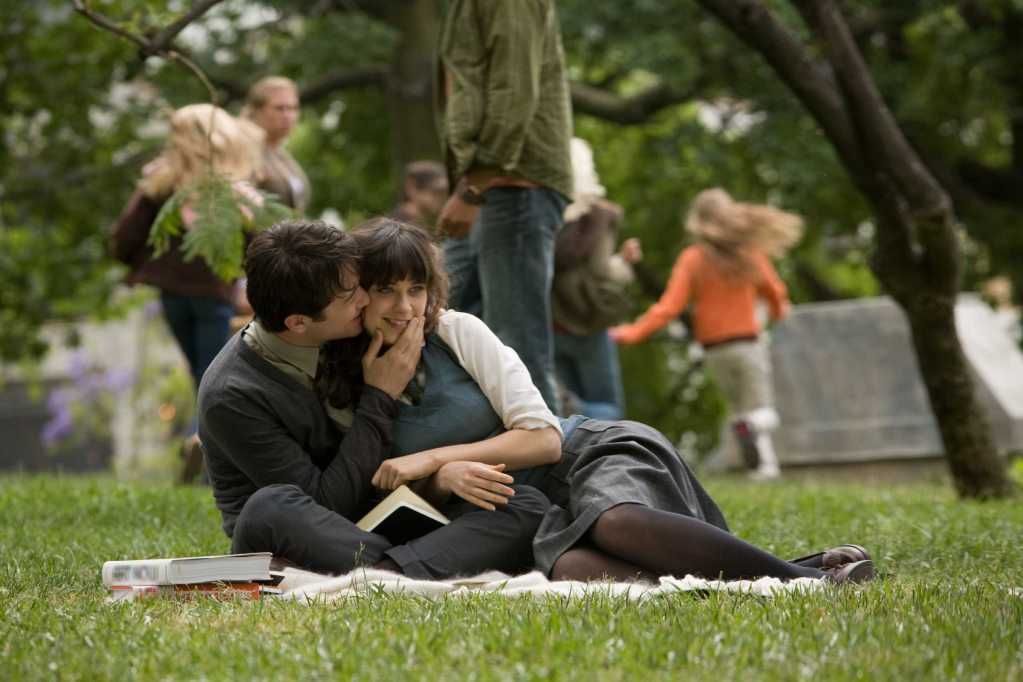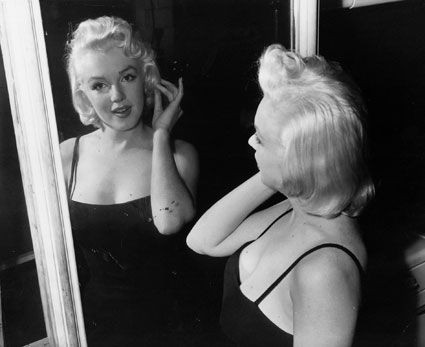Yesterday, you may recall or look down, I started things off with a quote from Jess Walter, author of Beautiful Ruins and The Financial Lives Of The Poets, from his recent interview with Michael Silverblatt, whose reading of Ruins got the two talking and me thinking about a few novels of late that have, rather than wait for hype to build or come to them in the form of reader's preconceptions or publisher's investments, taken on the the subject, and subjects, of expectation firsthand, like a fed up victim in a crowded barroom screaming "Hit me! Hit me!"
Beautiful Ruins is a novel set primarily just off the coast of Italy and Rome during the filming of the infamous and international flop Cleopatra. But while the making of the film was itself a well documented and easily revisitable disaster, the drama of this novel takes place mostly off set, as two strangers confront the meaning, if any, of their unexpected love from its startling induction 50 years ago up to the present day, with what else in between but, as Zooey Deschanel's character says in the film 500 Days of Summer, with, I think, a bit less nuance than Jess Walter's writing strives for), "life," interruption, and that frequently mistreated word, "reality." Reality, however, when not being harnessed as a euphemism for attack here in the Middle West on people who don't hate their jobs and home lives, is the perfect complement to expectation, in the sense that as Jess Walter says, with so much of it being not about fulfillment but loss, "what do you do with your life?"
 The question's kind of haunting, isn't it? Here in the land of plenty and "more please"? Like a Rorschach test in writing, when most people think "celebrity," these days, the next word that comes to mind is likely "sex" or "drugs" or some unique and death-defying combination of the two. But when Ann Beattie chose last year to write a novel based on life, shaking up most everybody's expectations of what separates a novel from a memoir in a surprisingly similar fashion to Sheila Heti's breakthrough novel, she too took it upon herself to conflate and reimagine the exceptionally private first lady, Mrs. Nixon's inner life with that of her public, though, by most accounts, expressionless persona. There's a tectonic shift of subtext that sustains and chances are came to inspire Mrs. Nixon, evident as well in Walter's book which in its excavation of mid-20th century Hollywood typifies a curious and unattractive change of heart and of perspective in our culture on the nature of celebrity, from a desire to acknowledge and celebrate its mystery to the more urgent want to penetrate, expose and, in most cases, shame its "true" identity.
The question's kind of haunting, isn't it? Here in the land of plenty and "more please"? Like a Rorschach test in writing, when most people think "celebrity," these days, the next word that comes to mind is likely "sex" or "drugs" or some unique and death-defying combination of the two. But when Ann Beattie chose last year to write a novel based on life, shaking up most everybody's expectations of what separates a novel from a memoir in a surprisingly similar fashion to Sheila Heti's breakthrough novel, she too took it upon herself to conflate and reimagine the exceptionally private first lady, Mrs. Nixon's inner life with that of her public, though, by most accounts, expressionless persona. There's a tectonic shift of subtext that sustains and chances are came to inspire Mrs. Nixon, evident as well in Walter's book which in its excavation of mid-20th century Hollywood typifies a curious and unattractive change of heart and of perspective in our culture on the nature of celebrity, from a desire to acknowledge and celebrate its mystery to the more urgent want to penetrate, expose and, in most cases, shame its "true" identity. That shift, however, isn't simply held up like a mirror to our society but turned to like a playground by these authors, who in the process of deflating and confounding what there is to say about a person who's been nothing if not spoken for, amalgamate our notions of both who that person is and has to be; notions which, in turn, inform our treatment of celebrities and their various and sundry wishes to be well liked or despised, but never disregarded, as Adam Beaver's novel Misfit makes more or less clear.
That shift, however, isn't simply held up like a mirror to our society but turned to like a playground by these authors, who in the process of deflating and confounding what there is to say about a person who's been nothing if not spoken for, amalgamate our notions of both who that person is and has to be; notions which, in turn, inform our treatment of celebrities and their various and sundry wishes to be well liked or despised, but never disregarded, as Adam Beaver's novel Misfit makes more or less clear. Perhaps it's easier to dig in deep and, from a creative writer's point of view, to think, if not see, interiorily about a life with a star who never claimed to be presenting us with anything outside of a performance. Mrs. Nixon (who it should be said went variously by "Pat," "Starlight," "Irish Gypsy," and others) is said to have looked at life the way an actor looks at a role, whatever that means. Marilyn Monroe, more unsettlingly, true to her role in Misfit, which is set against the actress' final days of life in Tahoe, but looks back on her relationships with Arthur Miller, Joe DiMaggio, and her old self, Norma Jeane, was reported to get worn out less from acting than from playing all the people people thought that she should be. Misfit, Braver says, according to Bookmagnet's Blog, “should not be read as a biography," but is “meant to examine a struggle for identity in a very public world, and the rewards and pitfalls of conforming to meet others’ expectations."
Expectations are unavoidable, even necessary. Book shopping, for one thing, wouldn't be much fun without them. But the real fun is allowing what we think, or thought, to change. As Silverblatt's quote suggests, neither lives nor records of them, as experienced or watched, can live up to our projections, on a screen or otherwise, in the face of all they haven't been, and yet our desire for their future, for a story still untold, remains, unflashingly, exactly what it was and is and will be.
 |
| "If you were ketchup where would you be?" |



No comments:
Post a Comment